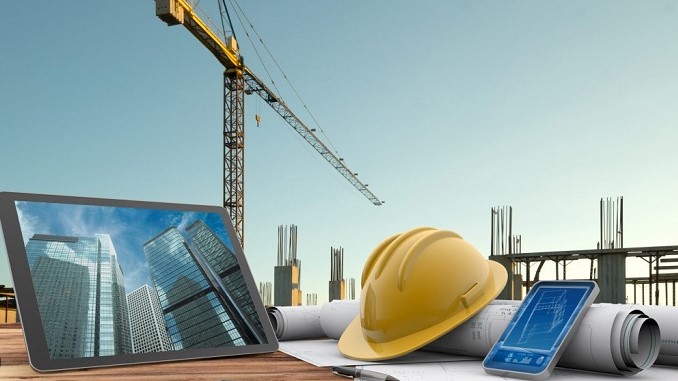Managing construction projects comes with its challenges. From coordinating multiple teams to keeping track of timelines, budgets, and compliance, there are a lot of moving parts involved. This is where Enterprise Resource Planning (ERP) systems come in. ERP has transformed the way construction firms and project managers operate, turning overwhelming processes into streamlined workflows.
Whether you’re a small construction business or a large-scale project manager overseeing multimillion-dollar developments, this article explores why ERP systems have become indispensable in construction and project management.
If you want to explore various types of ERP’s along with their benefits, key features, and how they’re shaping the future of the industry, just visit https://irondevsxerp.com/.
What Is ERP, and Why Does It Matter in Construction?
Enterprise Resource Planning (ERP) is a software system designed to integrate and manage core business processes in a unified platform. From finance and supply chain management to human resources and operations, ERP software enables better organization, reduces redundancies, and enhances overall efficiency.
For the construction industry, which often deals with complexities such as tight schedules, labor-intensive tasks, and compliance issues, ERP’s centralized functionality is a game changer. By providing real-time data and collaboration tools, ERP ensures everything runs smoothly from groundwork to project completion.
The Benefits of ERP in Construction and Project Management
1. Streamlined Project Planning and Execution
With ERP, construction project managers can create and visualize comprehensive project plans. These plans take into account timelines, resource allocation, and costs.
ERP allows for real-time tracking, so you’ll know if a task is running behind schedule or if certain resources are underutilized.
For example, a project manager for a residential development can use ERP dashboards to monitor milestones, ensuring timely delivery while mitigating risks.
2. Enhanced Budget Management
Budget management is one of the most complex challenges in construction. With so many variable costs such as labor, materials, and equipment, staying on budget can feel like an uphill battle.
ERP’s financial management capabilities ensure all expenses are tracked meticulously:
Track actual costs against pre-set budgets in real time.
Use forecasting tools to estimate future financial needs, avoiding unexpected overruns.
3. Improved Resource Allocation
Allocating resources effectively is crucial in any construction project. ERP solutions allow you to allocate people, machinery, and materials where they’re needed most.
Labor schedules can be optimized for efficiency.
Supplies can be monitored to ensure they are delivered on-site, avoiding downtime.
For example, ERP can track equipment usage and notify managers of underused machinery, which can then be reallocated to other projects.
4. Real-Time Communication and Collaboration
Construction projects involve multiple stakeholders, often spread across different locations. Miscommunication can delay projects, leading to cost blow-outs.
ERP fosters seamless communication by providing a centralized hub for all project-related information:
Architects, contractors, and subcontractors can collaborate in real-time, reducing error and confusion.
Field employees can input data directly into the platform, ensuring timely updates.
5. Ensure Compliance and Risk Mitigation
The construction industry is heavily regulated, and non-compliance can lead to significant penalties. ERP systems help ensure compliance with safety standards, legal requirements, and industry regulations.
ERP solutions also provide risk management tools:
Identify and monitor potential project risks early on.
Receive automated alerts for critical compliance updates, inspections, or certifications.
6. Data-Driven Decision Making
ERP software does more than just organize data; it transforms it into actionable insights:
Generate detailed reports on project performance, resource utilization, and financials.
Use predictive analytics to anticipate future trends and challenges.
Data collected during a project’s lifecycle can also help managers evaluate performance and make informed decisions for future initiatives.
Key Features to Look for in ERP Software for Construction
Now that we’ve outlined the benefits, you might be wondering what makes a good ERP system for construction. Here are some must-have features to ensure your software meets the specific needs of your business:
Look for features like Gantt charts, task management, and milestone tracking to maintain streamlined workflows. Inventory tracking, procurement capabilities, and vendor communication are critical to keeping a construction site productive. Budget tracking, expense reporting, and automated invoicing are essential for maintaining fiscal health. With teams often working remotely or on-site, mobile accessibility ensures that everyone remains connected on-the-go.
An ERP system should integrate seamlessly with other tools you may already be using, such as CAD software or task management platforms like Trello. Ensure the ERP software is scalable. Your business may start with smaller projects, but as it grows, you’ll need a solution that can handle increased demands.
Who Should Use ERP in Construction?
Small Businesses
Even small construction companies can benefit from an ERP system. While these solutions were traditionally expensive, many providers now offer budget-friendly options tailored to smaller operations.
Large Enterprises
For larger construction firms, ERP systems are nearly indispensable. They help unify operations, allowing for integration across multiple locations and projects.
Project Managers
ERP is a game-changer for individual project managers, handling everything from daily schedules to big-picture oversight.
Contractors & Subcontractors
ERP systems aren’t just for project owners and managers. Contractors and subcontractors can also use ERP platforms to track assignments, invoices, and deadlines more efficiently.
Trends Driving ERP Adoption in Construction
The rise of construction ERP usage can be directly tied to several emerging trends in the industry:
Digital Transformation With the construction industry slowly adopting more technological tools, ERP systems are at the centre of modern project management.
Sustainability – Track energy usage, waste reduction, and other sustainability targets through ERP platforms.
Remote Work – With mobile accessibility and cloud-based storage, ERP enables efficient work regardless of location.
AI Integration – Many ERP systems are now leveraging AI to provide advanced analytics and predictive models.
By adapting to these trends today, construction firms can stay relevant and maintain a competitive edge.



































